Betta fish are one of the most popular pets for fish enthusiasts, thanks to their vibrant colors and lively personalities. But when it comes to their care, feeding is a crucial aspect that can significantly impact their health and longevity.
If you’ve ever wondered, “How long does a betta fish live without food?” you’re in the right place. Understanding this can help you make informed decisions, whether you’re planning a short trip or simply want to ensure your fish’s well-being.
Betta Fish
What Are Betta Fish?
Betta fish, also known as Siamese fighting fish, are small, colorful freshwater fish that originate from Southeast Asia. They are known for their bright colors and elaborate fin displays, making them a favorite among aquarists.
Natural Habitat and Diet
In the wild, betta fish are found in shallow waters such as rice paddies, ponds, and slow-moving streams. Their natural diet consists of insects, larvae, and other small aquatic creatures. They are carnivores by nature, which means their diet in captivity should replicate this protein-rich diet as closely as possible.
Lifespan of Betta Fish
A healthy betta fish, when properly cared for, can live for about 3 to 5 years. However, their lifespan can be significantly reduced if their dietary needs are not met.
Feeding Requirements for Betta Fish
Typical Diet of Betta Fish
In captivity, betta fish thrive on a diet of high-quality pellets, freeze-dried foods, and live or frozen foods like brine shrimp and bloodworms. A varied diet helps to ensure they get the necessary nutrients for optimal health.
How Often Should Betta Fish Be Fed?
Typically, betta fish should be fed once or twice a day in small amounts. Achieving a balance in feeding is crucial since overfeeding can cause in obesity and other health problems.
Signs of a Well-Fed Betta Fish
A well-fed betta fish will have vibrant colors, active behavior, and a healthy appetite. They should be eager to eat but not overly aggressive or lethargic.
Survival Without Food
How Long Can Betta Fish Survive Without Food?
Betta fish are surprisingly resilient and can survive without food for up to 10-14 days. However, just because they can survive this long without food doesn’t mean it’s healthy or advisable.
Factors That Influence Survival Time
The survival time without food can vary depending on several factors, including the fish’s age, overall health, water temperature, and the environment. Younger, healthier fish might last longer, while older or sickly fish may not fare as well.
Differences Between Short-Term and Long-Term Fasting
Short-term fasting (1-3 days) is generally not harmful and can sometimes be beneficial, allowing the fish’s digestive system to rest. Long-term fasting, on the other hand, can lead to serious health problems and should be avoided.
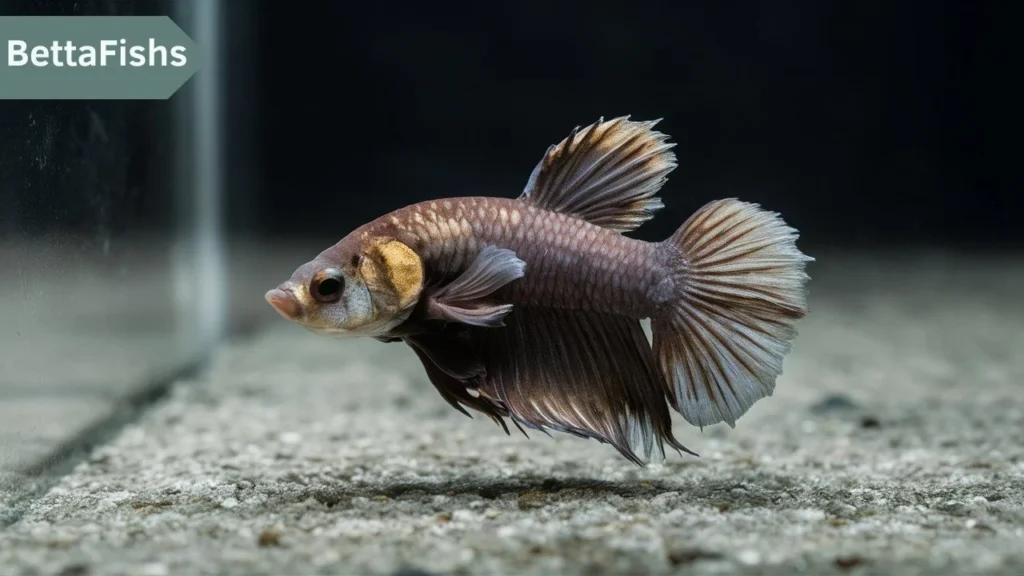
Short-Term Fasting and Its Effects
What Happens During Short-Term Fasting?
During short-term fasting, a betta fish’s metabolism slows down, and they begin to rely on their body’s fat reserves for energy. This process is relatively safe for a few days.
Physical and Behavioral Changes
You might notice your betta becoming slightly less active during short-term fasting. They may also exhibit less interest in their surroundings but should remain generally healthy.
Is Short-Term Fasting Harmful?
In most cases, short-term fasting is not harmful and can actually be beneficial, especially if your betta has been overfed in the past. It helps prevent constipation and bloating.
Practical Tips for Betta Fish Owners
How to Prepare for Short Trips
If you’re planning a short trip, it’s best to prepare your betta by feeding them a bit more in the days leading up to your departure. You can also use an automatic feeder to ensure they receive food while you’re away.
Using Automatic Feeders and Other Solutions
Automatic feeders are a great way to ensure your betta is fed while fade, becoming dull or even pale.
Behavioral Signs of Starvation
Behaviorally, a starving betta may become lethargic, spending more time resting at the bottom of the tank. They might also lose interest in their surroundings and show little to no response when food is introduced. In severe cases, a starving betta might start exhibiting erratic swimming behavior or appear disoriented.
How to Safely Reintroduce Food After Fasting
Steps for Reintroducing Food
After a period of fasting, it’s important to reintroduce food gradually to avoid shocking your betta’s digestive system. Start with small amounts of easily digestible food, like a few pellets or a small piece of a bloodworm. Observe how your betta reacts and increase the portion size slowly over the next few days.
What to Feed After Fasting
High-protein foods like brine shrimp or bloodworms are ideal after a fasting period. These foods are not only nutritious but also easier for your betta to digest. Stick to small portions and avoid overfeeding to prevent digestive issues.
Avoiding Overfeeding and Other Mistakes
Overfeeding after fasting is a common mistake that can lead to bloating and constipation. To avoid this, feed your betta small portions multiple times a day rather than one large meal. Also, ensure you’re not giving in to the temptation of feeding them too often just because they appear hungry.
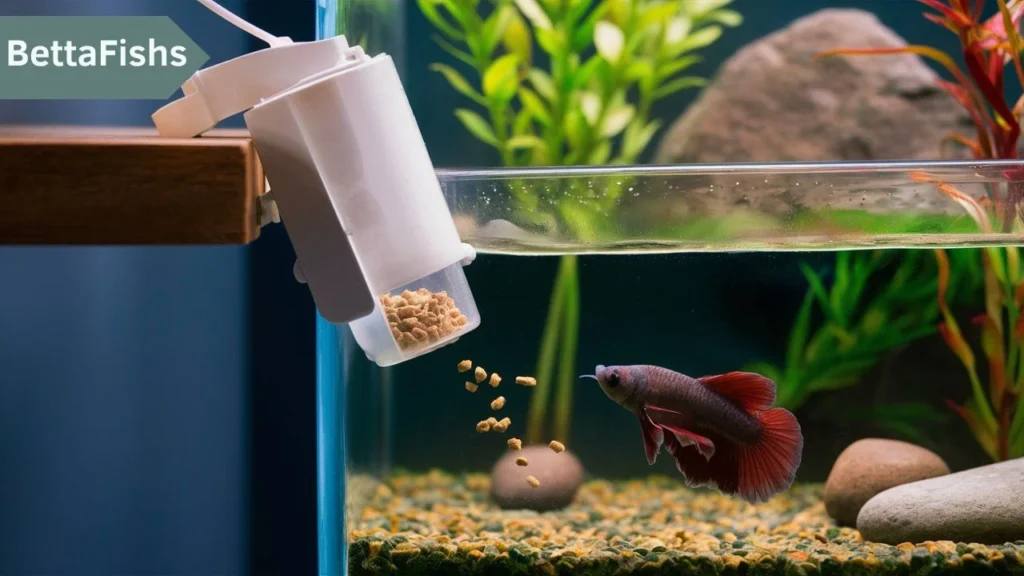
The Ethical Consideration of Fasting Betta Fish
Is It Ever Okay to Let Your Betta Fast?
Short-term fasting (up to three days) can be beneficial and is generally considered safe. It gives the digestive system time to rest, particularly if your betta has been overfed. However, long-term fasting is not recommended unless advised by a veterinarian for specific health reasons.
Weighing the Risks and Benefits
While short-term fasting can help prevent health issues like constipation, the risks of long-term fasting outweigh the benefits. Betta fish rely on regular, nutritious meals to maintain their health, and depriving them of food for extended periods can lead to severe health consequences.
Best Practices for Responsible Betta Care
As a responsible betta owner, it’s crucial to maintain a regular feeding schedule, provide a balanced diet, and ensure that your fish’s living conditions are optimal. If you know you’ll be away for more than a few days, make arrangements for feeding, either through an automatic feeder or by asking someone to help.
Common Myths About Betta Fish Feeding
Betta Fish Can Live just on Plant Roots
While it’s true that betta fish can survive up to 10-14 days without food, this doesn’t mean it’s healthy for them. Prolonged fasting can lead to severe health issues and should be avoided.
Betta Fish Can Survive on Plant Roots Alone
This is a common misconception, particularly among owners who keep their bettas in decorative vases with plant roots. Betta fish are carnivores and cannot survive on plant matter alone. They need a diet rich in protein to thrive.
Betta Fish Do Not Need Regular Feeding
Some believe that betta fish can be fed sporadically without consequences. However, irregular feeding can lead to stress, weakened immune systems, and other health issues. Consistent, balanced feeding is key to keeping your betta healthy.
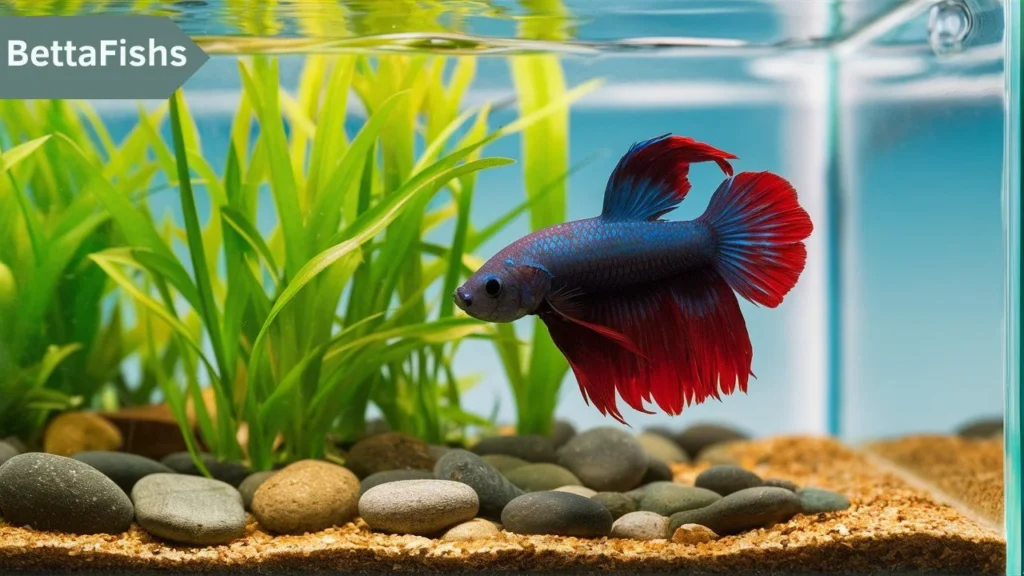
Conclusion
Understanding how long a betta fish can live without food is essential for responsible pet ownership. While bettas are resilient and can survive short periods without food, it’s important to ensure they are fed regularly and have a balanced diet. Short-term fasting can be beneficial in some cases, but long-term deprivation can lead to serious health issues. By maintaining a healthy environment and being mindful of your betta’s feeding needs, you can help ensure they live a long, vibrant life.
FAQs
How Often Should I Feed My Betta Fish?
You should feed your betta fish once or twice a day, with small, protein-rich meals. This helps maintain their health and prevents overeating.
Can Betta Fish Survive Without Food for a Week?
Yes, betta fish can survive for about a week without food, but it’s not ideal. Prolonged fasting can lead to health issues, so it’s best to ensure they are fed regularly.
What Should I Do If My Betta Fish Refuses to Eat?
If your betta fish refuses to eat, first check the water quality and temperature. If everything seems normal, try offering a different type of food, such as live or frozen food. If the problem persists, consult a veterinarian.
How Can I Tell If My Betta Fish Is Hungry?
A hungry betta fish may swim to the top of the tank when you approach, searching for food. They may also exhibit more active behavior as if looking for something to eat.
Is It Safe to Fast My Betta Fish Regularly?
Regular short-term fasting (up to two days) is generally safe and can even be beneficial. However, frequent or extended fasting should be avoided as it can lead to malnutrition and other health problems.


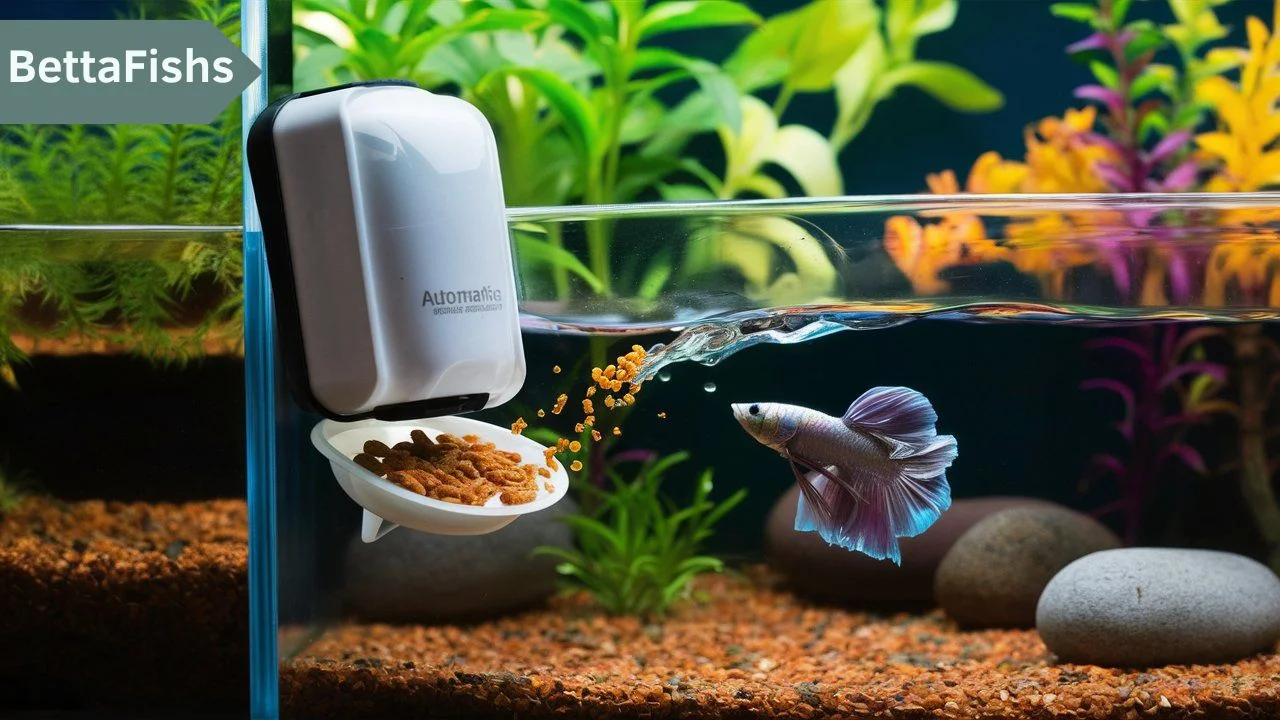
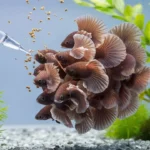
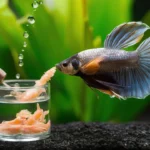
6 Comments
Leave a Reply6 Pings & Trackbacks
Pingback:What is the Best Food for Betta Fish?
Pingback:Can I Feed a Betta Fish Goldfish Food?
Pingback:What can Betta fish eat of Human food?
Pingback:Can Betta fish eat tropical fish food?
Pingback:How much food for Betta fish?
Pingback:How Often Do Betta Fish Eat?